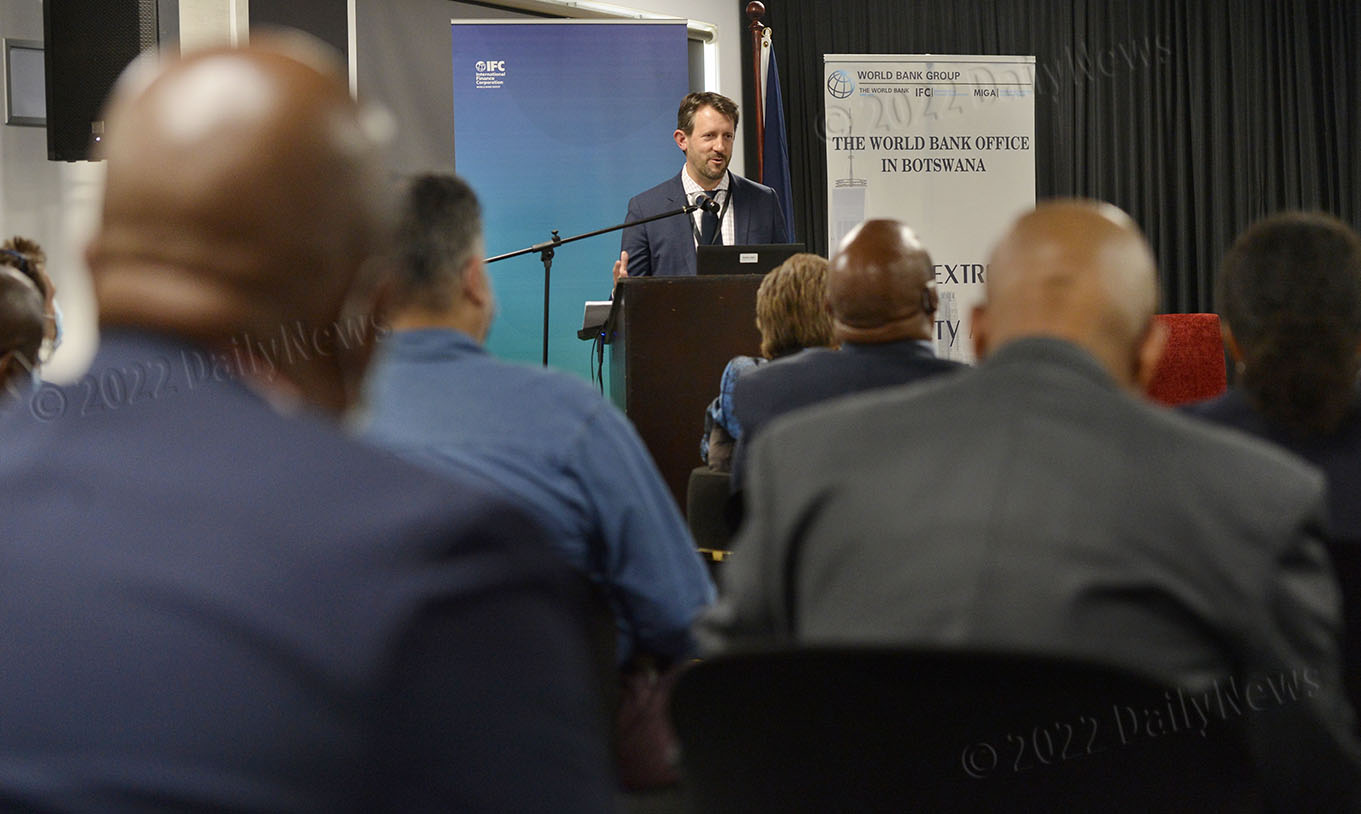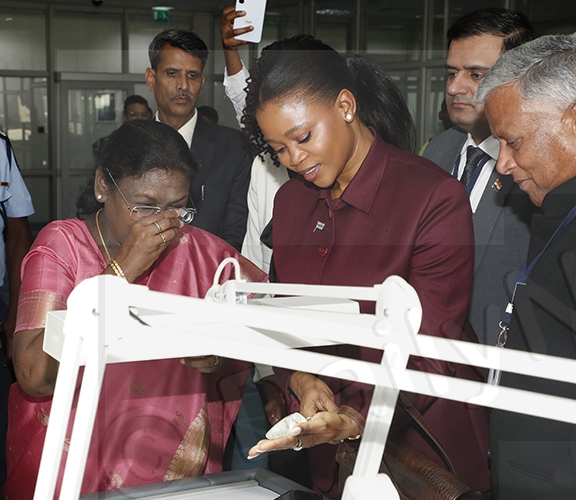Eliminate cross-cutting constraints for diversification
10 Jul 2022
A private sector-led diversification pathway requires addressing cross-cutting constraints and attracting private investment to key sectors.
Senior private sector specialist at the World Bank, Mr Michael Ehst said this at the launch of Botswana Country Private Sector Diagnostic (CPSD) report before participants from the World Bank, International Finance Corporation, and the Minister of Finance on Wednesday.
He said there was an urgent need for Botswana to increase competition through State-Owned Enterprises (SOEs) reform by reducing excessive state support to such enterprises as well as privatising SOEs in sectors with strong private segment investment potential.
Addressing cross-cutting constraints on competitiveness, he said diversification could be stimulated by enabling private investment in high-potential sectors through stronger fundamentals for competitiveness.
He said to achieve this, Botswana ought to improve access to financing by small and medium enterprises (SMEs), upgrade transportation and electricity infrastructure, as well as strengthen product standards and certification systems, among others.
Mr Ehst said there was a significant untapped potential for private investment in enabling sectors such as energy and water to attract capital and skills into the market while improving important factors for private sector competitiveness.
He further stated that government could do more to catalyse and attract investment in high-potential export sectors such as tourism.
He said among cross-cutting constraints to private sector development was excessive state presence in sectors that were fully commercial, which hindered competition and private sector participation.
Notably, Mr Ehst said government owned more than 10 per cent of 95 firms across the 16 sectors reviewed.
He revealed that the SME financing gap stood at an estimated 19 per cent of GDP, with only eight per cent of smaller firms receiving funds from a commercial bank between 2014/17 and 45 per cent accessing outside funding from diverse sources.
He urged government to consider facilitating vigorous acquisition of funding by SMEs.
He enlisted poor infrastructure as one other constraint, mentioning that as a landlocked country Botswana’s poor roads compared to peers resulted in high transportation costs that undermined competitive export prices.
He lamented that low domestic electricity generation capacity also equated to a high dependency on imported power, which stood as another bottleneck to diversification.
As for weak standards and certifications, he stated that very few Batswana companies were certified to national and international standards, particularly SMEs.
He indicated that more than 75 per cent were not certified to any quality, sustainability, or other standards. Ends
Source : BOPA
Author : Marvin Motlhabane
Location : GABORONE
Event : Botswana CPSD Launch
Date : 10 Jul 2022






